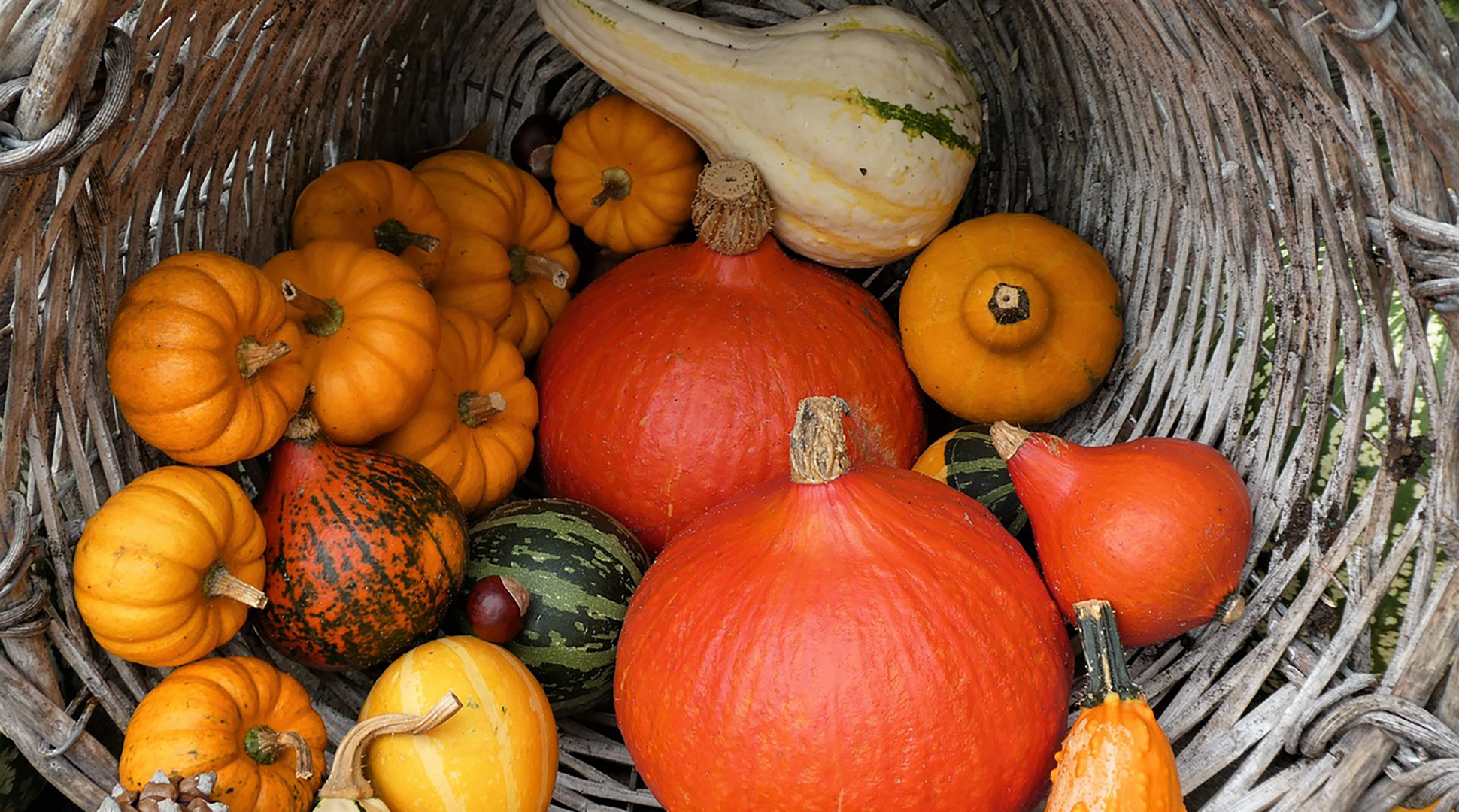Photo courtesy Pixabay
By Julie Garden-Robinson, PhD, LRD
Fall is my favorite season of the year. Our outside environment becomes a feast for our eyes as leaves change from green to gold, orange or red and float in the breeze.
We are greeted by farmers markets and store displays with colorful red apples. Many varieties of squash are available. Some are green, others are orange or gold, and their rinds may be smooth or bumpy.
I always enjoy the grocery store squash displays that look like a still-life portrait that has come to life. I almost do not want to disturb the artistry of the set-up.
Many grocery stores have a handy reference book. You can look up information about the produce you are buying and learn how to prepare and store the food.
Next time you see a squash assortment, test yourself to see how many types of squash you can name. Can you identify an acorn squash? Can you find a butternut squash or a buttercup squash? Can you pick a sugar pumpkin out of the lineup?
Squash have many cousins in the overall “Cucurbitaceae” family. Cucurbit means “gourd” in Latin.
In fact, more than 800 species of plants would show up to a cucurbit family reunion. Some references say at least 900 “gourds” are part of the extended family.
Cucumbers, summer squash (zucchini), watermelons and other melons are plant relatives of squash.
Winter squash, including buttercup, butternut and hubbard, have fairly long storage lives of three to six months in cool places (50 to 55 degrees Fahrenheit).
While we call squash a “vegetable” on the menu, technically, they are the fruit of the plant. Regardless of what you call them, try some squash.
The orange flesh of squash signals they are a good source of beta-carotene. Squash is literally a feast for our eyes as well as the rest of our body. Our bodies can convert beta-carotene to vitamin A, which is healthy for our eyes (in helping prevent night blindness). Vitamin A is good for our skin, immune system, lungs and heart.
A deficiency in vitamin A can cause “xerophtalmia” or the inability to see in low light.
If you do not like squash, you have some other options to meet your needs. Green leafy vegetables such as spinach, carrots, broccoli, cantaloupe, eggs, salmon, and fortified milk and cereal are other vitamin A sources.
One half cup of squash will not undo a weight-loss diet with its 42 calories. The fiber content in squash is filling and good for your digestive system.
If you want to save some squash for winter, you can you cook and mash squash and seal in freezer bags or freezer containers. However, canning mashed pumpkin is not recommended for safety reasons, because the heat cannot fully penetrate the thick mashed pumpkin.
You can, however, can chunks of squash if you use a pressure canner and current guidelines. See the food preservation information at www.ag.ndsu.edu/food for details.
As we transition into fall and enjoy colorful sights and foods, I have a special invitation for readers of this column. I promise there will be colorful handouts and recipes provided.
We are launching a free online nutrition program called "Nourish" on Oct. 16. We especially want to reach adults 50 plus, but adults of any age are welcome. Sign up at the same time as a friend or family member and nurture each other’s progress as you learn about nourishing your body.
Each class will focus on one topic, such as how to keep your eyes healthy. Other topics include how to keep your heart, brain, digestive system, skin, bones and joints healthy – and strategies for getting more sleep.
We ask that you try to finish the self-paced classes before the end of 2023. A steady pace of one module a week will get you there. You can participate online at any time, so that is perfect for night owls or early birds.
We provide recipes to try and websites to visit for more information. We will have prize drawings for those who finish the series of classes along with the survey evaluations.
Visit www.ag.ndsu.edu/nourish to register for the free web-based classes or face-to-face classes (if offered in your community in North Dakota).
Julie Garden-Robinson, is a North Dakota State University Extension food and nutrition specialist and professor in the Department of Health, Nutrition and Exercise Sciences.
